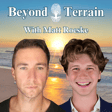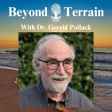
Jeremy Hammond on the Existence of Viruses, Isolation, Genomics, EM, Serology, and More!
This week, we are joined by Jeremy Hammond to discuss the existence of viruses. Today, we are fortunate to present an opposing viewpoint to challenge the no-virus paradigm shift. This wasn't a debate, but rather an opportunity to explore differing perspectives. Listening to this episode will help you formulate your own ideas and responses on this topic, which may extend to discussions about exosomes.
Regardless of your stance on the no-virus movement, understanding and mastering opposing views can strengthen your position. This episode is worth listening to, no matter where you stand in this debate.
We began by discussing viral isolation, then moved on to genomics and variants. Our conversation progressed to cell culture and cytopathic effect experiments, where we examined Stefan Lanka's work and the concept of mock infection. We also covered serology/immunology, contagion studies, and Koch's Postulates.
We concluded by discussing areas of agreement, such as the flaws in PCR testing, inaccuracies in case numbers, and the concept of asymptomatic carriers.
Learn from me
https://www.instagram.com/beyond.terrain/
https://linktr.ee/beyondterrain
https://x.com/BeyondTerrain
Support the vision
Share!!!
BCH: bitcoincash:qq7eq276ylanluc5e39unrqshkvs9xsemg07yxezf7
ETH: beyondterrain.eth
BTC: bc1qqwc470ktgj3l4myqxr5hq67rnlqys0qm98u6f0
https://www.buymeacoffee.com/beyondterrain
How to support and Learn from Jeremy
https://www.jeremyrhammond.com/











![DNA Doesn't Exist & Genomic Nonsense with Dr. Jerneja Tomsic [Part 2] image](https://media.zencastr.com/cdn-cgi/image/width=112,quality=85/image-files/652933f3a749dc383eb375de/ce5a5fd9-98c9-44fe-9b4b-3d0cd5abcf29.png)






